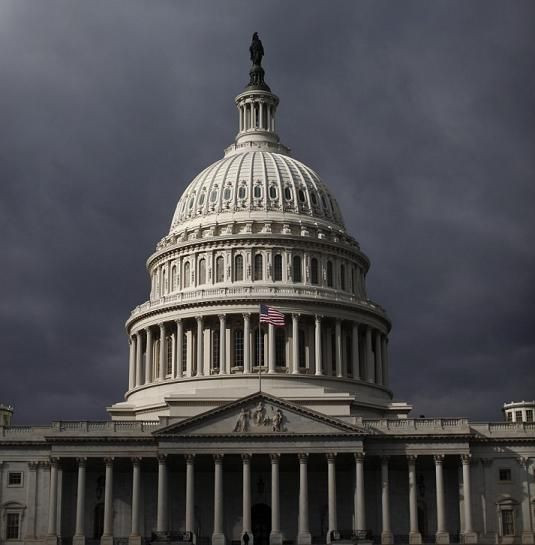A Fiscal Cliff Deal Or Backup Bill Vote? Taxpayers Should Know Sunday

With only two days to go before the U.S. plunges off the so-called fiscal cliff, Senate leaders are locked in negotiations over a plan to beat the deadline before across-the-board tax increases begin to kick in New Year's Day.
Senate Majority Leader Harry Reid, D-Nev., and Senate Minority Leader Mitch McConnell, R-Ky., are expected to have something to present to their caucuses by Sunday afternoon so that legislation can be set and voted on, either Sunday or Monday.
Both the Senate and the House of Representatives have convened for rare Sunday sessions.
U.S. President Barack Obama called on both Senate leaders to craft a bipartisan deal that would retain middle-class and business tax cuts, while offering a road map to tackle the country's $16.37 trillion federal debt and retain fiscal policies conducive to growth in the nation's gross domestic product.
“Congress can prevent [the fiscal cliff] from happening, if they act now,” Obama said in his weekly address Saturday. “Leaders in Congress are working on a way to prevent this tax hike on the middle class, and I believe that we may be able to reach an agreement that can pass both houses in time.”
Without the deal, the low George W. Bush-era income-tax cuts will expire, contributing to the more than $600 billion in automatic spending cuts and tax increases that are set to take effect in the new year.
Should this happen, the nonpartisan Congressional Budget Office's most recent projections indicate U.S. GDP would fall by 0.5 percent and the country's unemployment rate would rise to 9.1 percent by the fourth quarter of next year.
GOP aides told the Washingon Post that House Speaker John Boehner, R-Ohio, would like any bipartisan deal to pass with about equal support among Republicans and Democrats.
Boehner's leadership will be tested -- again -- if and when any bipartisan Senate bill heads to the House.
A little over a week ago, Boehner's caucus in the House balked at the speaker's plan, the so-called Plan B tax bill, which included an income-tax increase for those making more than $1 million annually. Tea Party faction members and other conservatives rebelled in such great numbers that Boehner canceled the vote. That inaction placed the tax ball back in the Senate's court. But, regardless of whether the legislation has an initial Senate or House imprint, the president wants a bill that protects middle-income taxpayers.
“I will urge Senator Reid to bring to the floor a basic package for an up-or-down vote –- one that protects the middle class from an income tax hike, extends the vital lifeline of unemployment insurance to two million Americans looking for a job, and lays the groundwork for future cooperation on more economic growth and deficit reduction,” Obama said at a news conference Friday.
While the outcome of the nation's latest budget crisis is uncertain at this time, lawmakers are bracing for a backlash from voters who would begin seeing smaller paychecks late next month, if current income-tax rates are not maintained, according to Politico. And as is the case with many Washington budget fights, blame is a complicated matter.
Sen. Jerry Moran, R-Kan., the incoming chairman of the National Republican Senatorial Committee, told Politico that Republicans are being blamed in the short term for the fiscal mess, but Democrats will feel the sting in the long term.
“I think, in the long term, the political damage is to the president and to Democrats,” Moran said.
Sen. Mary Landrieu, D-La., told Politico that she doesn’t fault Americans for wondering why lawmakers cannot get it together. She thinks both parties stand to lose.
“It’s hard to explain,” Landrieu said. “I don’t think it looks good for either party.”
© Copyright IBTimes 2024. All rights reserved.






















